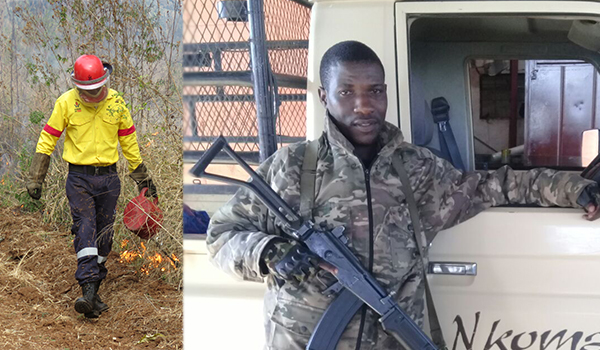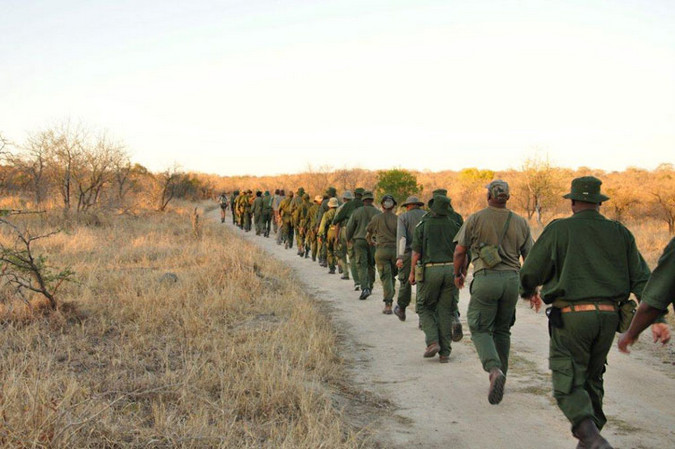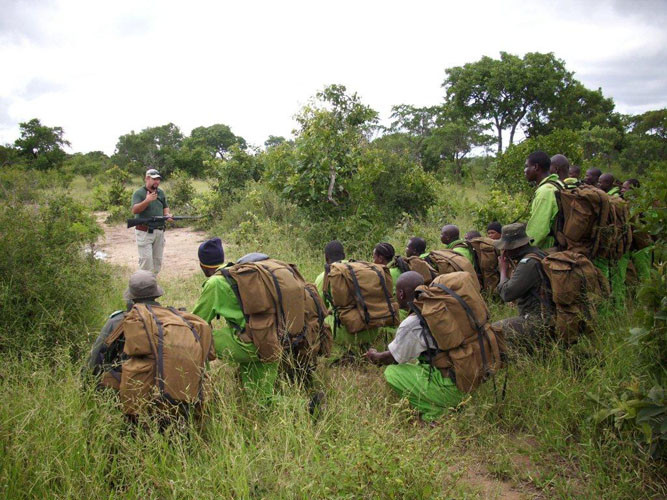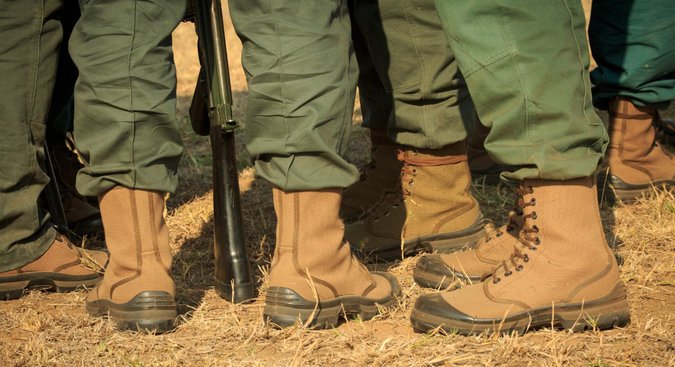30 JULY 2018, 6:09PM / MOLAOLE MONTSHO
RUSTENBURG - To some they are sons, daughters, fathers, mothers, husbands, wives, brothers and sisters -- they are the rangers who while protecting the continent's wildlife from poachers.
The world will remember these brave men and women on Tuesday July 31, when World Ranger Day is celebrated worldwide in honour of rangers killed or injured in the line of duty and to celebrate the work they do to protect the planet’s natural treasures and cultural heritage.
In South Africa, Respect Mathebula was the first ranger to be killed by poachers in the Kruger National Park in more than 50 years.
He was seriously wounded on July 19, during a shootout with the alleged poaching group and died on the way to hospital.
The rangers had been tracking the alleged poachers, supported by the dog unit. The skirmish took place when the rangers pursued the alleged poachers.
Mathebula was based in the Crocodile Bridge section of the Kruger National Park – a hotbed of poaching activity in the world famous park.
Speaking at his funeral service, Environmental Affairs Minister Dr Edna Molewa said he was one of hundreds of rangers that have had to take up arms in the execution of his duties as the work of field rangers has become more militarised in order to address the scourge of poaching.
"Respect [Mathebula] was one of these men who spent days in the veld, patrolling select areas to flush out poachers and thus ensure no animal or plant is harmed.
"In particularly hard hit areas the ranger corps has been militarised, with some rangers engaged in daily confrontations with heavily armed gangs in the parks. Poachers pose a major threat to the rhino population, particularly in the Kruger National Park, Limpopo, KwaZulu-Natal, the Eastern Cape, North West and Mpumalanga," Molewa said.
"Respect’s death has highlighted that rangers work in environments that range from peaceful on one day to confrontational the next. This is a line of work where the ranger stands between the criminal and poacher and the country’s heritage."
Mathebula's death at the hands of alleged rhino poachers is an indication of the severity of the threat rangers are faced with on a daily basis. But the high death toll of Africa's rangers also attest to the lack of support and resources that are an everyday reality for many of them.
In parts of the continent, they work without sufficient equipment, without adequate skills training, with poor facilities and rely on scant resources.
The teams protecting wildlife from poachers need support from their employers and from governments, politicians, law enforcement agencies and judicial systems. They also need the backing of industries that rely on the existence of protected, conservation and natural areas such as tourism, hunting and the ever-growing environmental NGO sector.
And they require support from communities, industries and the public who benefit from social, economic and ecosystem services provided by areas that rangers protect. Until this changes and the world unites behind rangers, the bloodshed will continue.
In the last 12 months alone, at least 63 rangers from Africa have died due to work related causes. This total rises to over 107 dead rangers across the globe according to the International Ranger Foundation (IRF), during the same period. Many ranger deaths go unreported, so it is thought that the actual figure could be two to three times higher.
Over 200 rangers died in the line of duty over the past six years, the Game Rangers’ Association of Africa (GRAA) said on Monday, a day before the World Ranger Day.
GRAA said 269 rangers have died since 2012 in Africa. A total of 176 rangers were gunned down by militia groups, unknown assailants or armed poachers working for multinational wildlife crime syndicates. Four died as a result of accidental shooting, 21 died in animal-related incidents, vehicle accidents claimed 23, while other accidents claimed seven, 14 drowned and nine died due to illness while the cause of death of 15 rangers was not known.
"These deaths are the result of brutal competition to illegally plunder the rich natural resources of Africa whether they be minerals, timber or wildlife products such as ivory, rhino horn and bush meat," Chris Galliers, the chairman of the GRAA, said.
Rangers have been trampled, gored and attacked by dangerous wild animals that they seek to protect or have died as a result of preventable diseases, often not treated properly because of inadequate medical support.
They have also been killed in avoidable situations such as accidental shootings or drownings. Plane, car and motorcycle accidents have claimed the lives of others.
Political instability and conflict have led to 57 of these violent deaths taking place in the Democratic Republic of Congo alone.
In Kenya, 30 rangers were killed, Nigeria, 15, Cameroon, 10, Uganda, 10, Mali, eight, and South Africa, eight. These seven countries account for almost 80 percent of all recorded ranger murders on the continent. Professional associations say unfortunately, many more are deaths are unreported.
The GRAA is a non-profit organisation, founded in 1970, which provides support, networks and representation for rangers across Africa.
The GRAA is a member of the International Ranger Federation (IRF) and the International Union for Conservation of Nature (IUCN).
It has recognised chapters in Angola, Ivory Coast, Namibia, Nigeria, South Africa and Zambia.
https://www.iol.co.za/news/south-africa ... y-16322363





